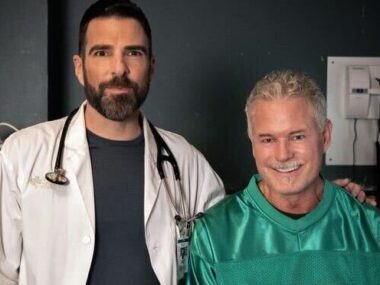Finding My People
Written by |

I cried again as I read yet another social media post by a caregiving spouse whose husband just died from ALS.
ALS kills someone every 90 minutes, and I’ve made online connections with many caregivers, which means I frequently read of somebody’s loss.
I cry hardest when another mom with young children loses her partner. How will she navigate on her own? How will losing a parent at such a young age affect the kids?
These are questions I’ve asked myself for the last decade since my husband was diagnosed with the disease when our children were just 9 months and 4 years old.
The disease is so varied, and all caregivers come at this from different places in life.
The family living with ALS with young kids still at home has a different experience than those who have already launched their kids into the world.
I’ve sought out community with other moms who are walking this hard road with kids in tow. I started an online group for caregiving spouses who have children who aren’t yet adults.
I also feel a particular kinship with other wives whose husbands were diagnosed on the younger end of the spectrum and with those whose partners have slow progression.
ALS almost feels like different diseases depending on whether the progression is fast or slow. Those with fast progression have trouble managing the constant changes and can’t keep up with getting necessary equipment. Those with slow progression need to find endurance for a marathon of decline.
There are other ways we could divide the big ALS umbrella to find commonalities in subgroups.
For some, the disease starts with the bulbar, while others become paralyzed before breathing and speech are severely affected. Dealing with communication challenges is one type of difficulty, and dealing with mobility issues is another beast.
Another subgroup consists of those who care for someone with a ventilator, providing the intensive care needed.
All ALS is hard, but it is hard in different ways for everyone.
The one thing we all have in common is grief. We have all lost dreams, and unless there is effective treatment soon, we will lose our loved ones.
It’s tough to be part of a community that is always grieving, and yet I’m compelled to pop in daily on the various online groups that I’ve joined, all with the initials ALS in the title.
I get ideas from others of ways to manage Todd’s health and how to practically and mentally prepare for what lies ahead. And I weigh in with comments, sharing what we’ve learned.
People who’ve been hit with ALS are my people. It’s a community no one wants to be a member of, but I’m glad we have each other.
***
Note: ALS News Today is strictly a news and information website about the disease. It does not provide medical advice, diagnosis, or treatment. This content is not intended to be a substitute for professional medical advice, diagnosis, or treatment. Always seek the advice of your physician or other qualified health provider with any questions you may have regarding a medical condition. Never disregard professional medical advice or delay in seeking it because of something you have read on this website. The opinions expressed in this column are not those of ALS News Today or its parent company, Bionews, and are intended to spark discussion about issues pertaining to ALS.






Linda teller
I have AlS .diagnosed one year ago. I'm a healthy active 70 yr old female. I can't talk so use speech asesst I walk with a cane. I use suction and Bypap.I fight this disease stay positive
Kristin Neva
Staying positive is a challenge but it helps. Thanks for sharing, Linda.
Cali
Kristen, you captured being an ALS caregiver perfectly.
Kristin Neva
Thanks Cali!
Gay Valimont
My husband was just diagnosed, and this is the first time I could work up to reading anything written by anyone in the same horrible place. It's been 6 weeks and I still can't stop crying. We have an 8 yo.
Kristin Neva
I'm sorry to hear of your husband's diagnosis. Coming to terms with the diagnosis and the knowledge of what is coming is one of the hardest parts of the disease--and as moms, we ache for our children. It's been ten years for us and I still cry, but I will say that even with the sadness that never completely goes away, there has been joy and good times in these difficult years. Thanks for commenting, Gay.